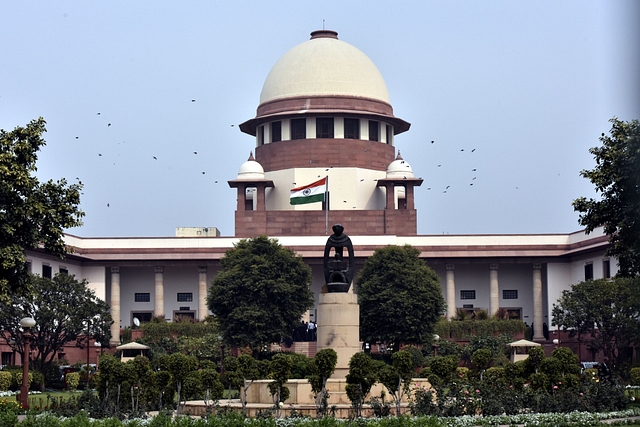
‘Is There Cross Border Terrorism?’: SC Questions Lawyer Drawing An Analogy Between Kashmir And Hong Kong
"Is there cross border terrorism in Hong Kong?", the Supreme Court on Thursday (21 November) queried the counsel who sought to draw an analogy between Kashmir and Hong Kong, which is facing unprecedented pro-democracy protests for over five months.
The Hong Kong court in a recent decision ruled against the law to ban face masks. The Hong Kong Chief Executive, Carrie Lam, had proposed a ban in the backdrop of increasing demonstrations and the protesters had adopted a strategy of using masks to hide their identities in public.
Senior advocate Meenakshi Arora, representing an intervenor in a matter connected with restrictions in Jammu and Kashmir following revocation of Article 370, cited before a bench headed by Justice N V Ramana the Hong Kong court's recent decision against a law banning face masks.
Arora sought to draw an analogy between the restrictions imposed on people in Kashmir and Hong Kong. She told the bench that in the Hong Kong judgement, the test of proportionality was applied. Justice Ramana replied that the Indian Supreme Court is also far superior in upholding fundamental rights of citizens.
Arora contested, "The situation in Hong Kong is actually worse. The citizens conducted peaceful protests... Proportionality test was applied. Citing this, I am just drawing an analogy."
Justice B R Gavai, who is also on the bench, querying her on the backdrop of protests in Hong Kong, said "Is there cross border terrorism in Hong Kong?"
Justice Gavai insisted that the apex court has delivered an order upholding rights of the citizens, "Why bank on Hong Kong judgement?"
Justice Ramana said the top court has a long tradition of upholding rights of the citizens.
Arora said a large Army deployment in Jammu and Kashmir leads to the creation of an "inert citizen", which is not in the interest of democracy, as this citizen behaves with a fear on his mind. "For people to speak out, they should be fearless", she insisted while referring to psychological and physical restraints.
"It was the people of Jammu and Kashmir who were worst affected by abrogation of Article 370. They should have been allowed to air their views", she told the court.
The Hong Kong High Court had recently ruled that a ban on wearing face masks during public demonstrations was unconstitutional.
(This story has been published from a wire agency feed without modifications to the text. Only the headline has been changed.)